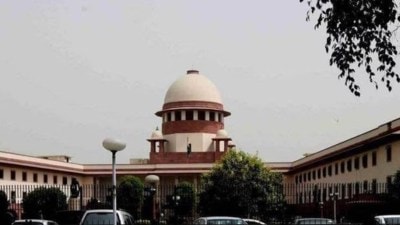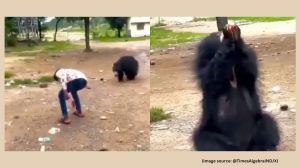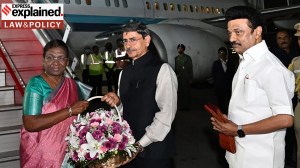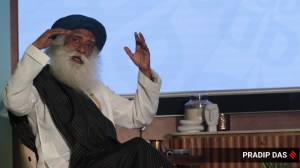Stay updated with the latest - Click here to follow us on Instagram
Pop go the whiskers, Europe splits hairs
Bearded drag queen’s win in Eurovision exposes divide between Europe’s progressives, conservatives (read Russia)
It’s the beard that divided a continent. The victory of whiskered drag queen Conchita Wurst in the Eurovision Song Contest had celebrities from Nigella Lawson to Russell Brand posting bearded selfies on the Internet in tribute — and Russian men snapping clean-shaven pictures in protest.
For millions of viewers, the annual Eurovision show is a cheesy music competition renowned for its camp, kitsch and electro beats. But the nation-based contest is also a potent mix of patriotism and politics in bubblegum wrapping.
Wurst’s win has exposed a divide between Europe’s progressives and conservatives that British tabloid The Sun cheekily described Monday as the “Furred World War”.
The statuesque brunette with the soaring voice of a diva and a full dark beard called her first-place finish a victory for tolerance and respect. Austrian President Heinz Fischer said it was “not just a victory for Austria, but above all for diversity and tolerance in Europe”.
But pro-Kremlin legislator Olga Batalina said the Eurovision victory proved the need for Russia’s contentious law banning so-called gay propaganda. She chalked the win up to “aggressive and persistent” gay propaganda.
That may sound like a lot of rhetoric over a talent show but Eurovision has always been more than a simple singing contest.
Founded in 1956, the competition pits European nations against one another in pursuit of pop music glory. It has helped launch the careers of stars including Sweden’s ABBA — victors in 1974 — and Canada’s Celine Dion, who won for Switzerland in 1988.
But it is more generally loved, and mocked, for its parade of cheesy tunes from quirky performers. The live telecast is watched by some 180 million people and has a particularly strong gay following. It also faces perennial accusations of regional block-voting and geopolitical games.
“Eurovision is the one forum in which countries can pass judgment on each other without repercussions,” said Paul Jordan, a political scientist who did his PhD on the show.
Winners are decided by the votes of viewers and national juries from 37 participating countries. During the May 10 final in Copenhagen, Russia was booed each time its act — teenage twins Anastasia and Maria Tolmachevy — won points. Russia, which came seventh, got most of its support from neighbours, and gave its maximum points to Armenia, Azerbaijan and Belarus, all former Soviet republics.
Politics, both personal and international, has often intruded on Eurovision.
Lebanon withdrew from Eurovision in 2005 after its national broadcaster refused to show the Israeli entry. Georgia pulled out in 2009 after its song We Don’t Wanna Put In — a dig at Russian leader Vladimir Putin — was judged excessively political.
Jordan said despite the divisions it revealed, Eurovision was a unique European institution.
And for all the noisy rhetoric, official results showed that Wurst was the third most-popular act with Russia’s voters.
Photos




- 01
- 02
- 03
- 04
- 05



























